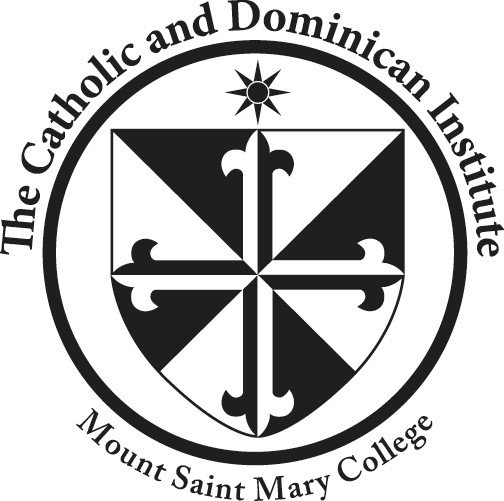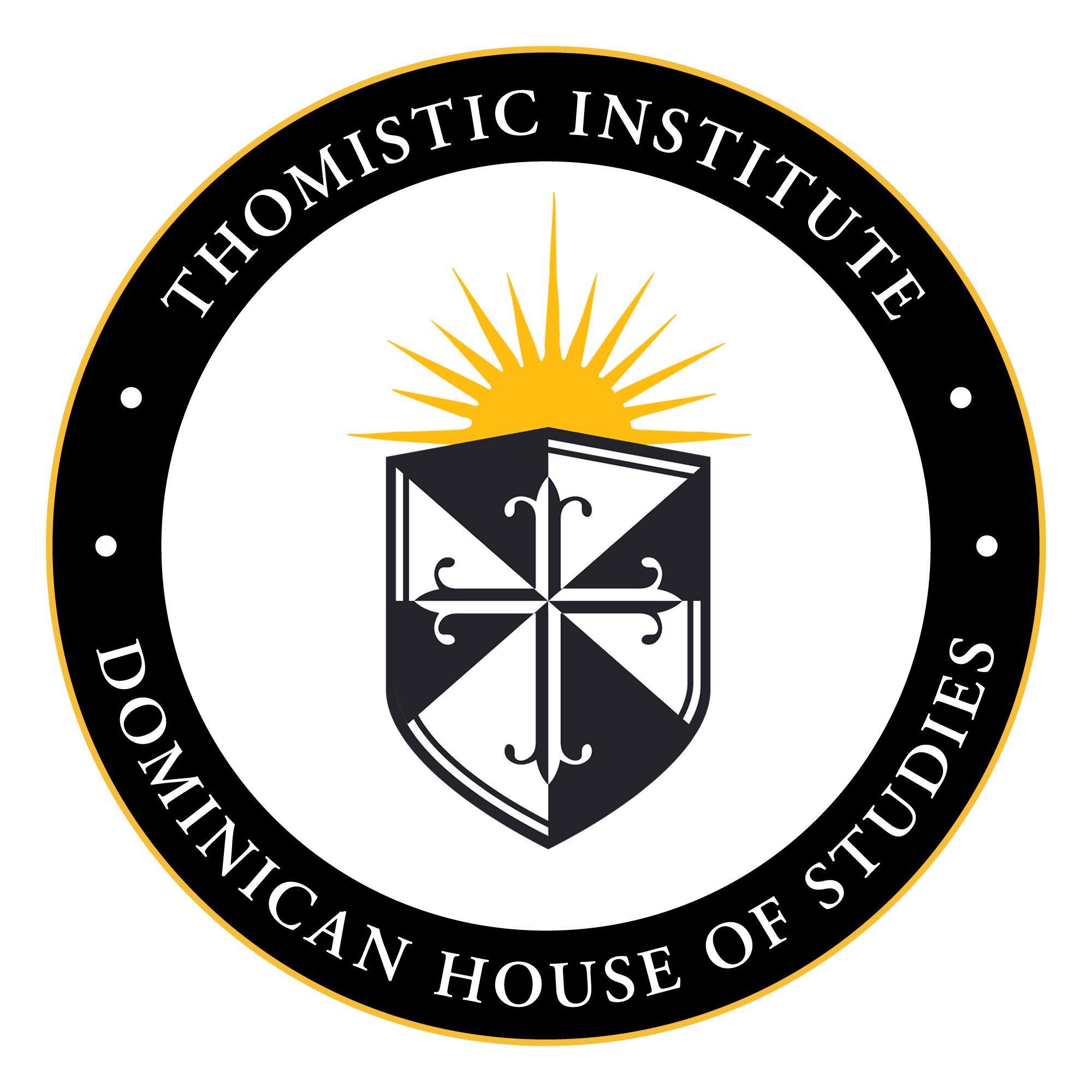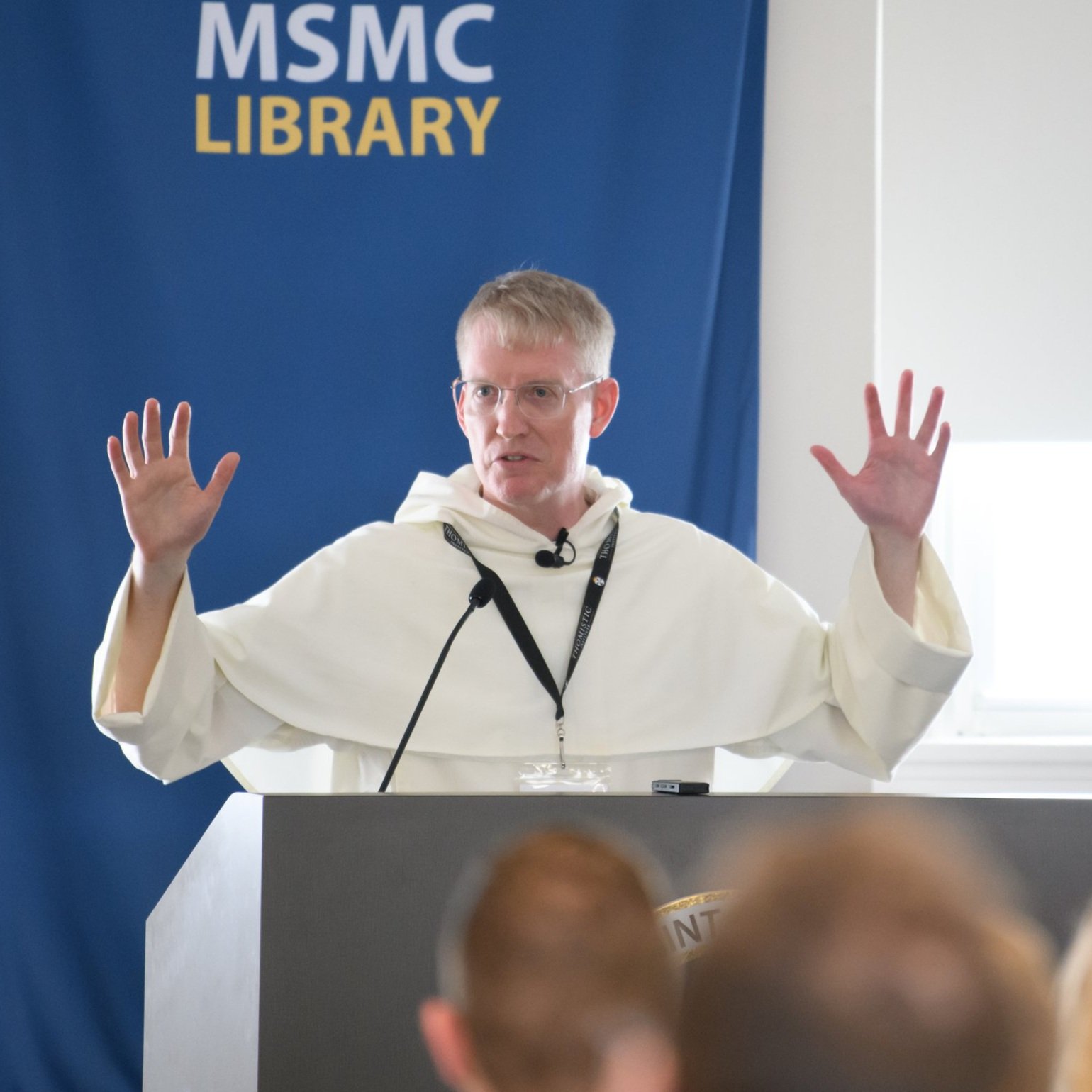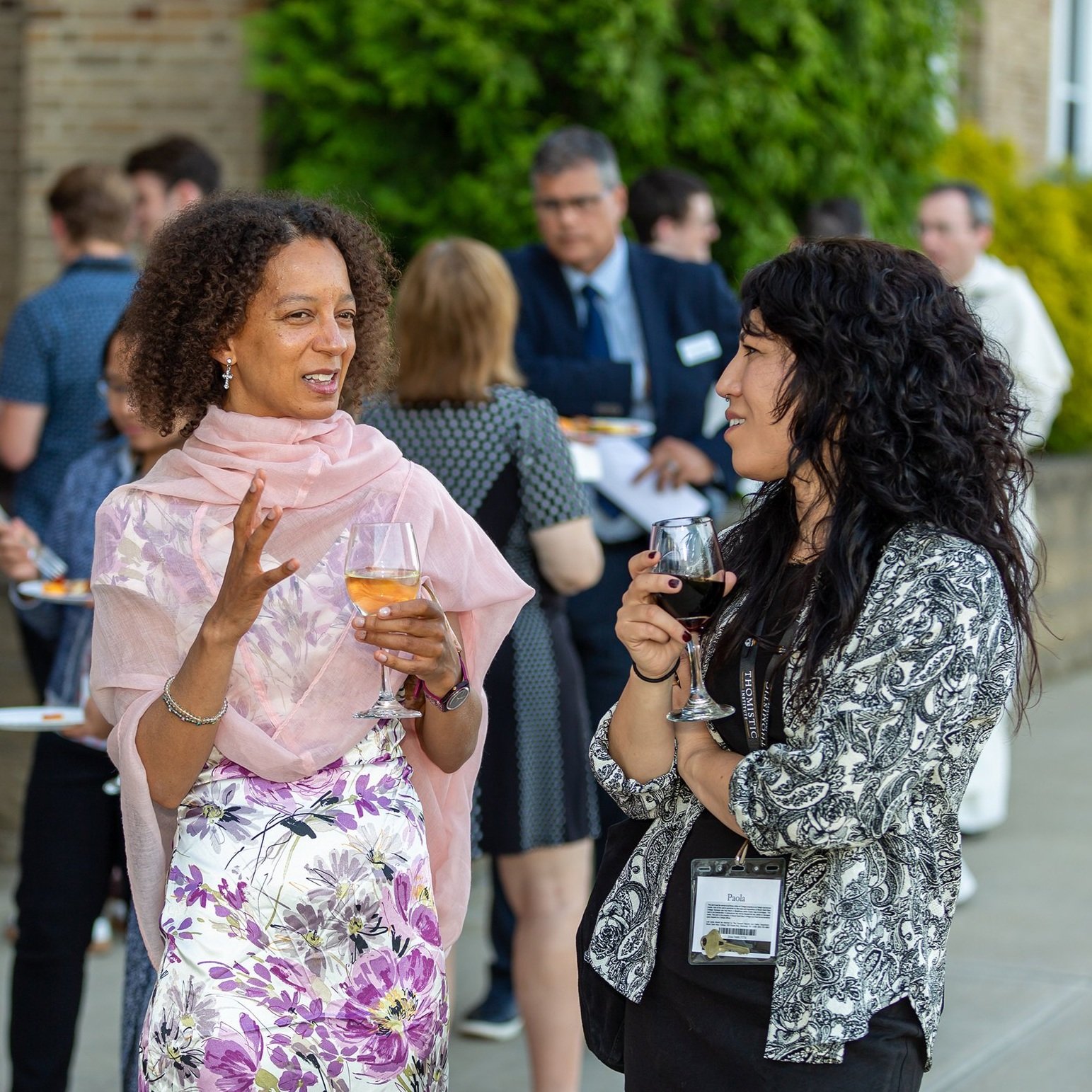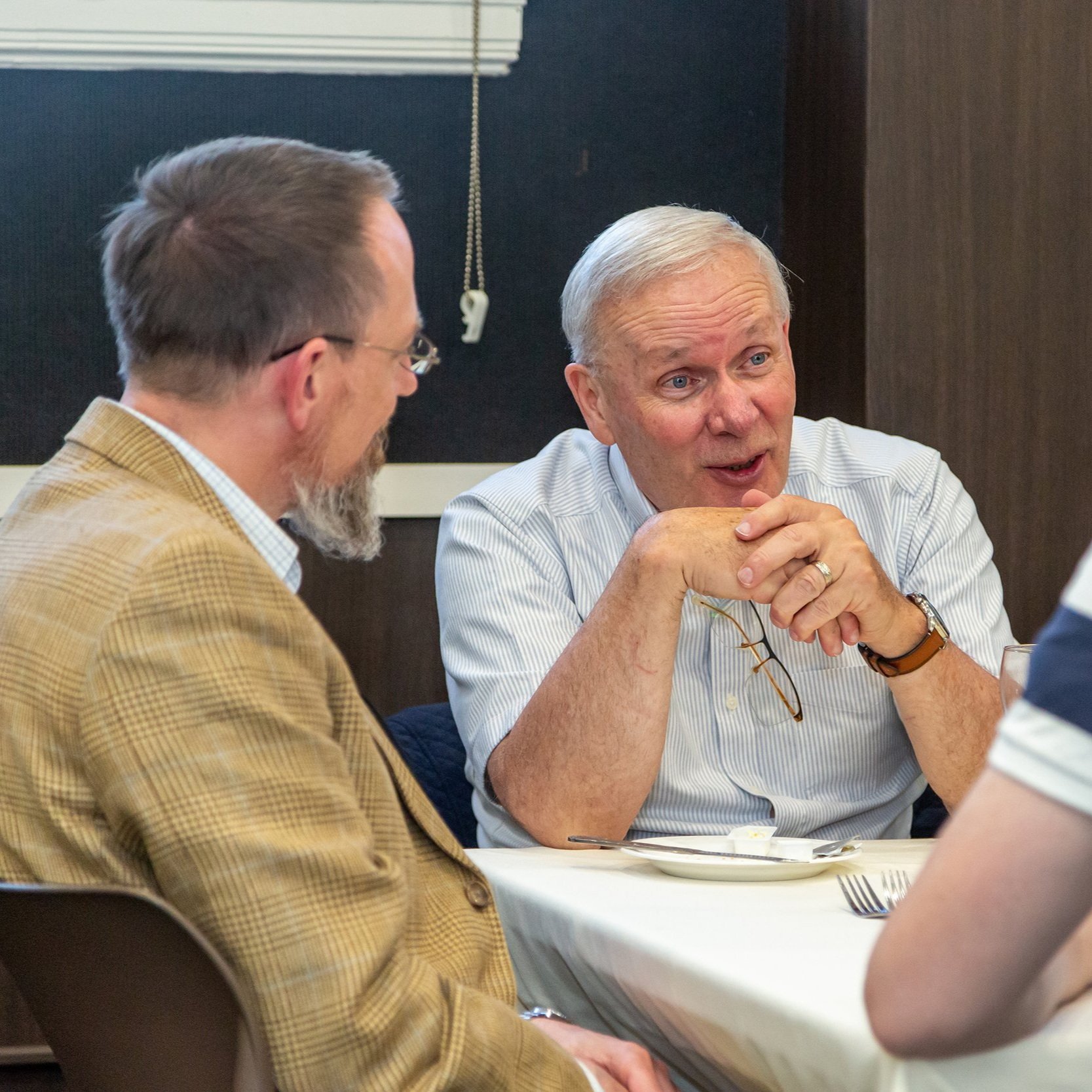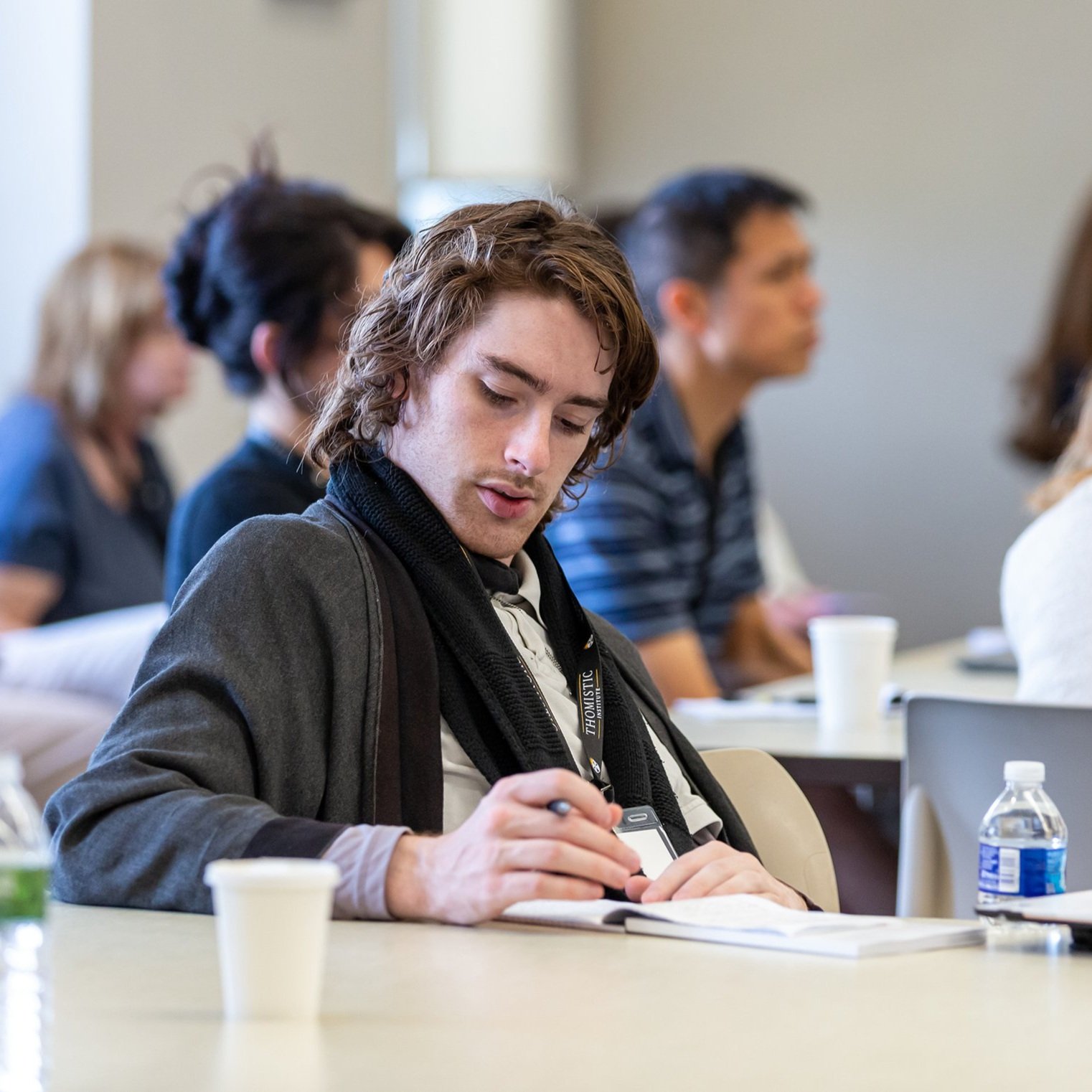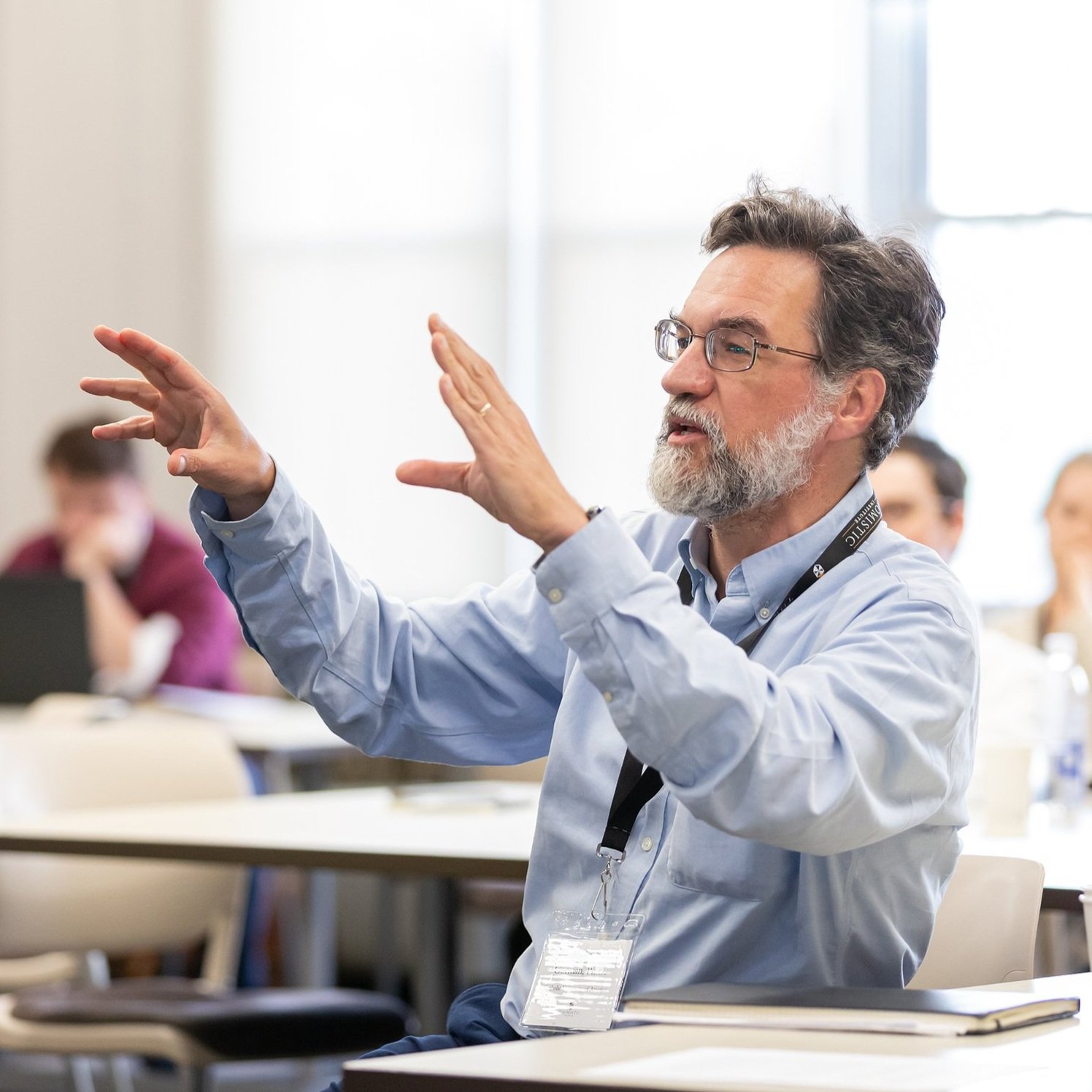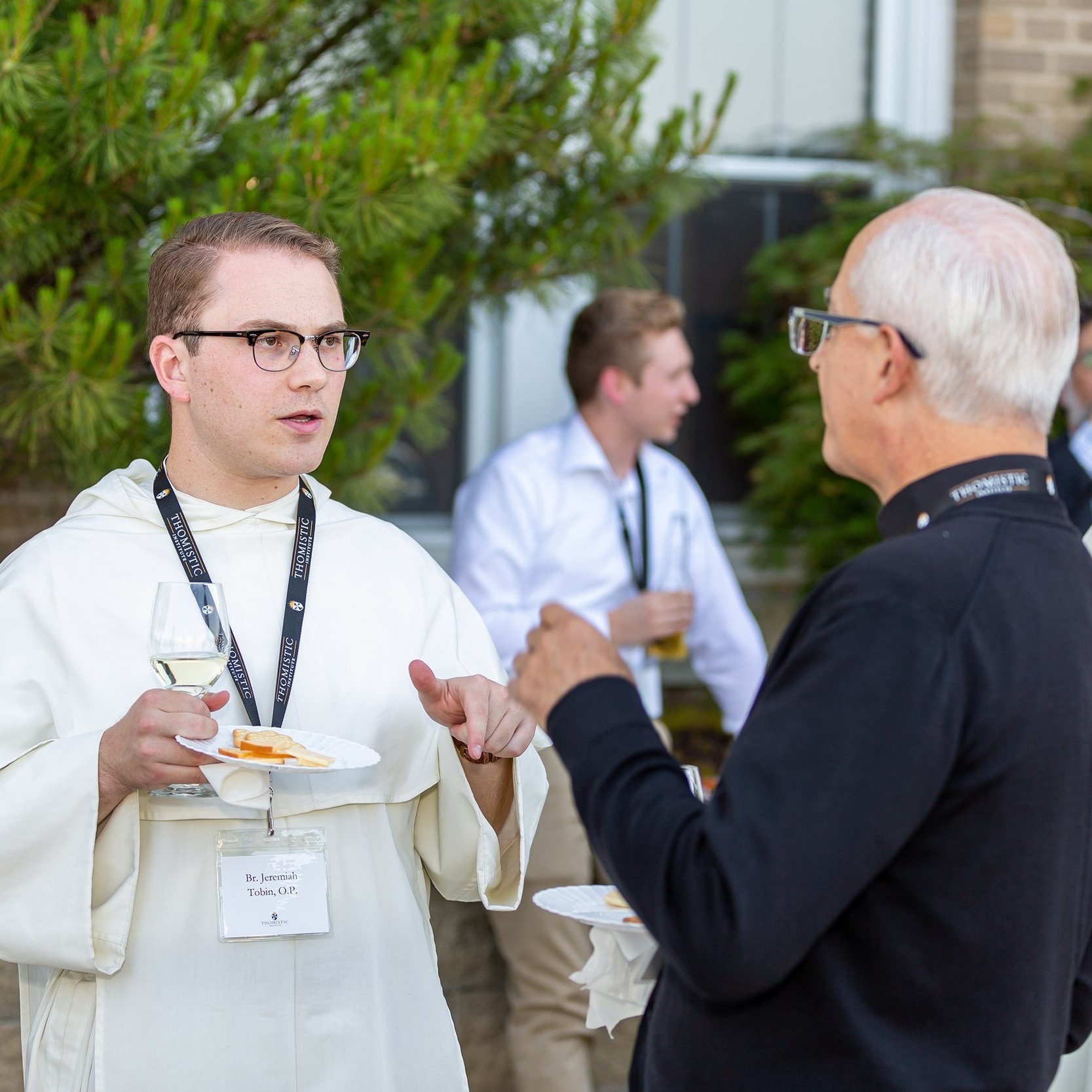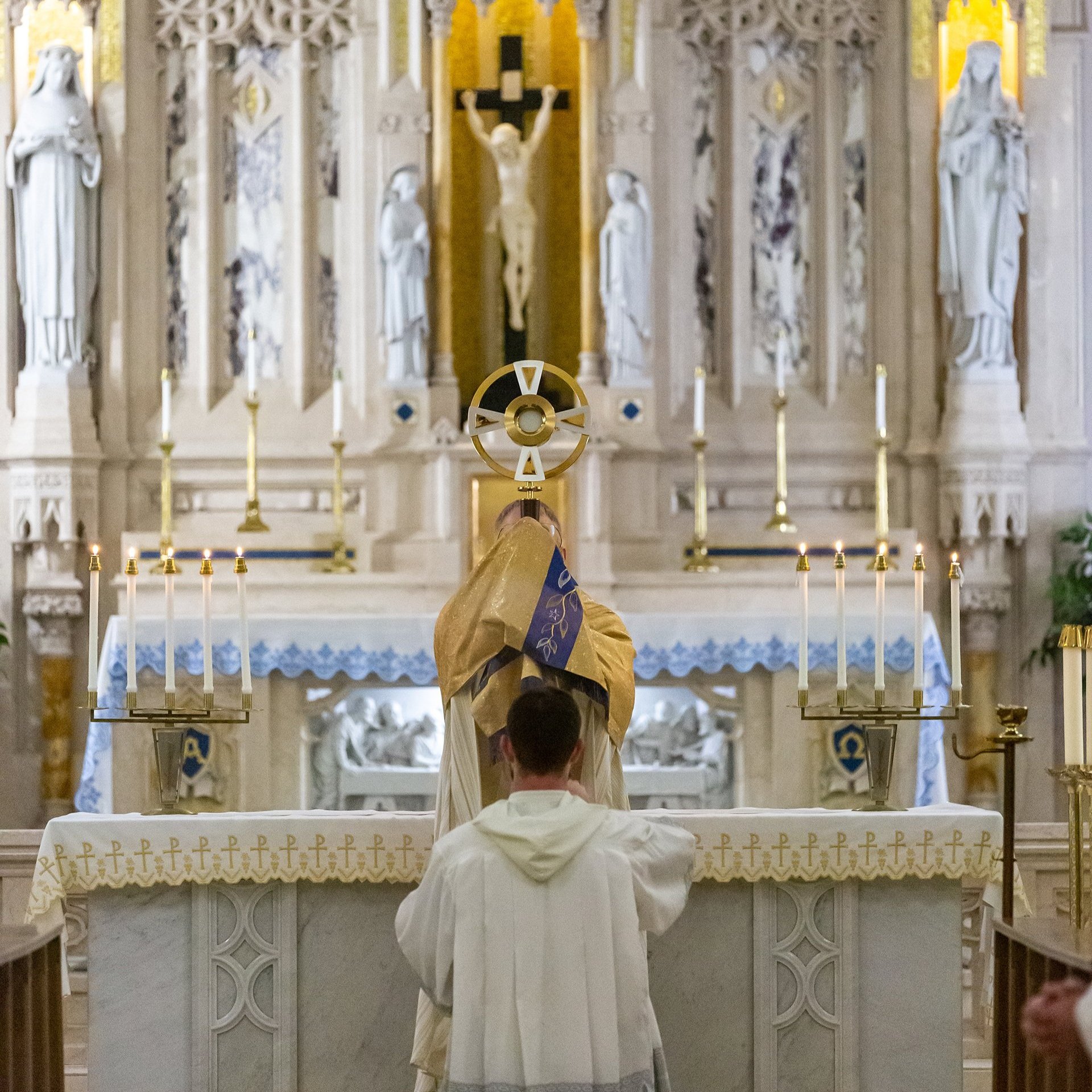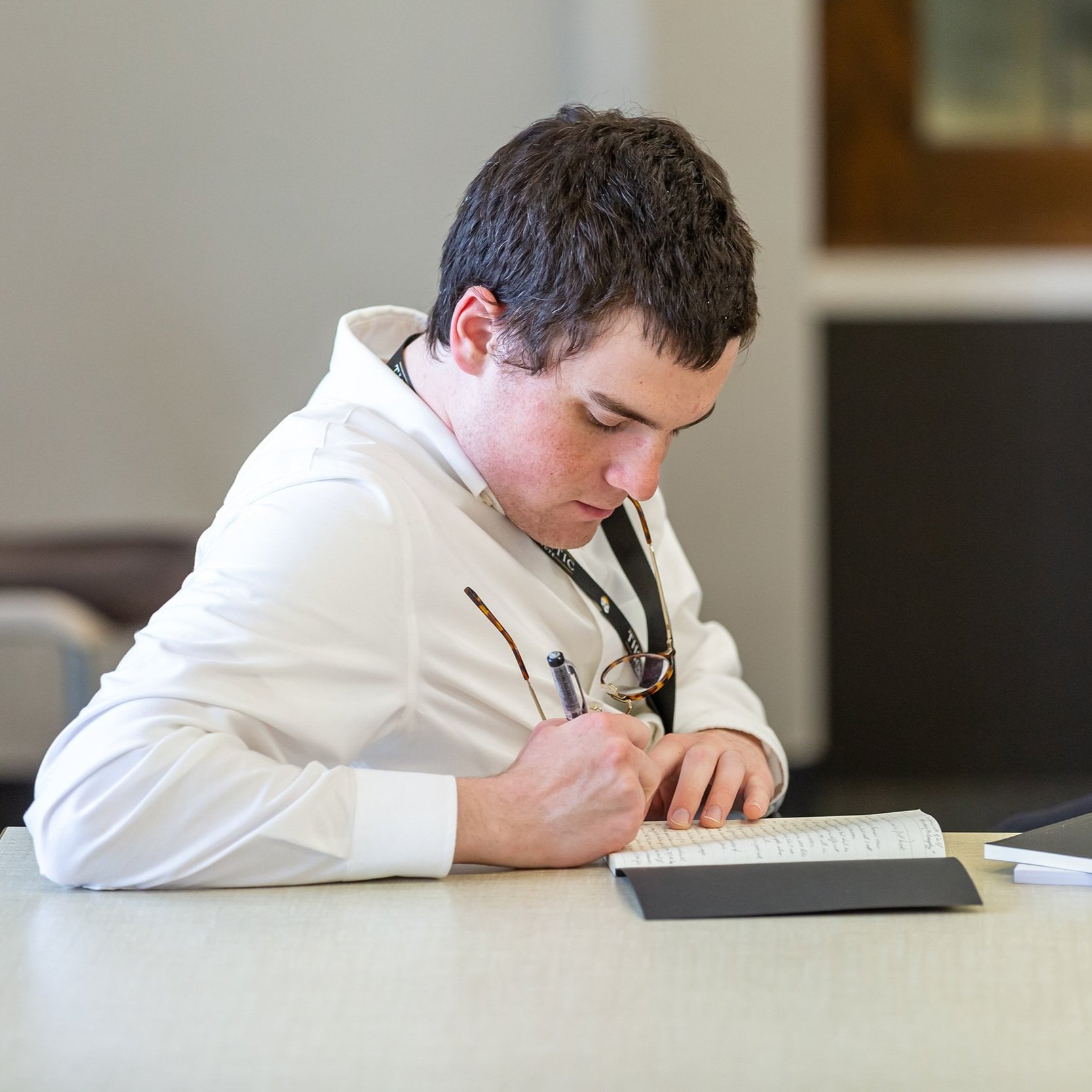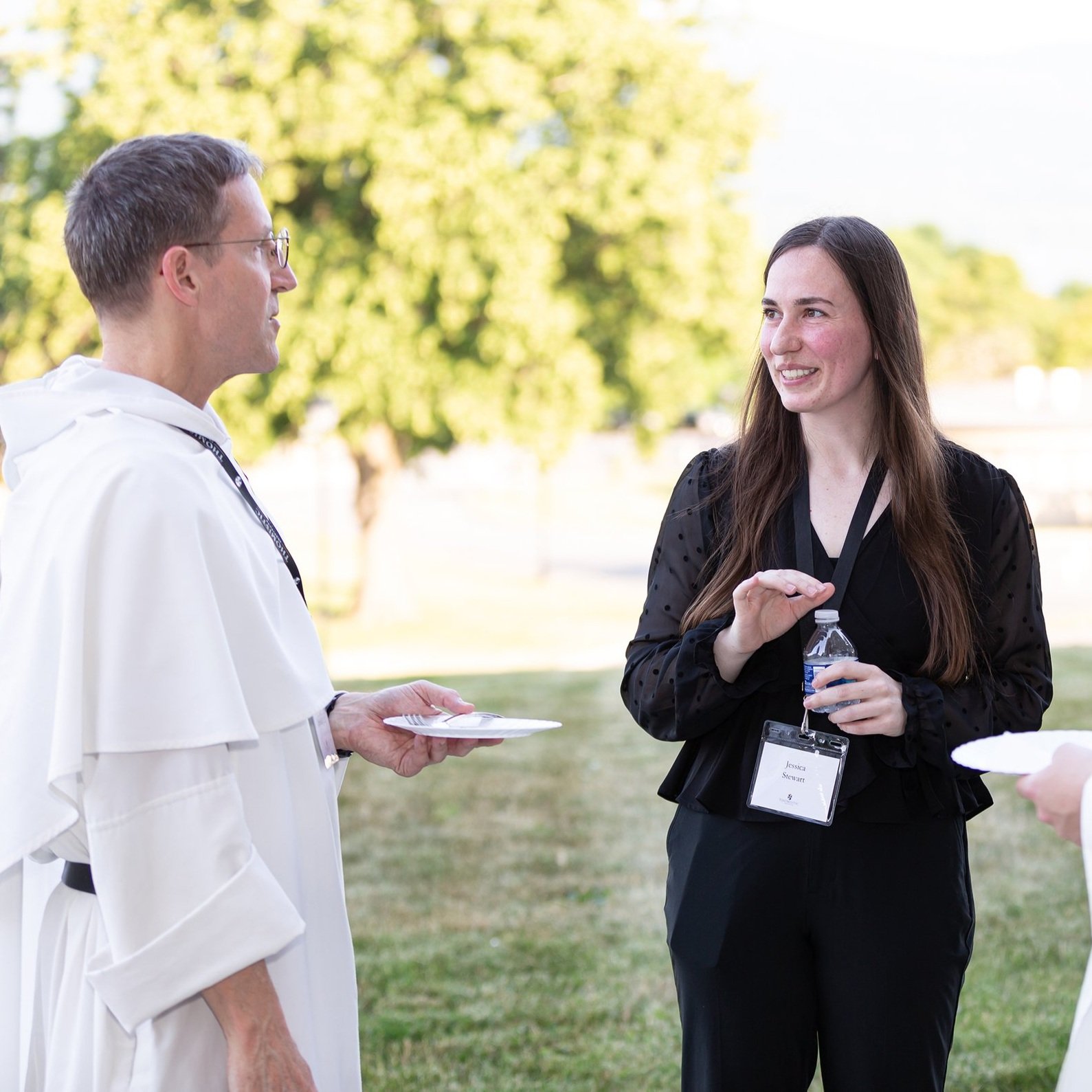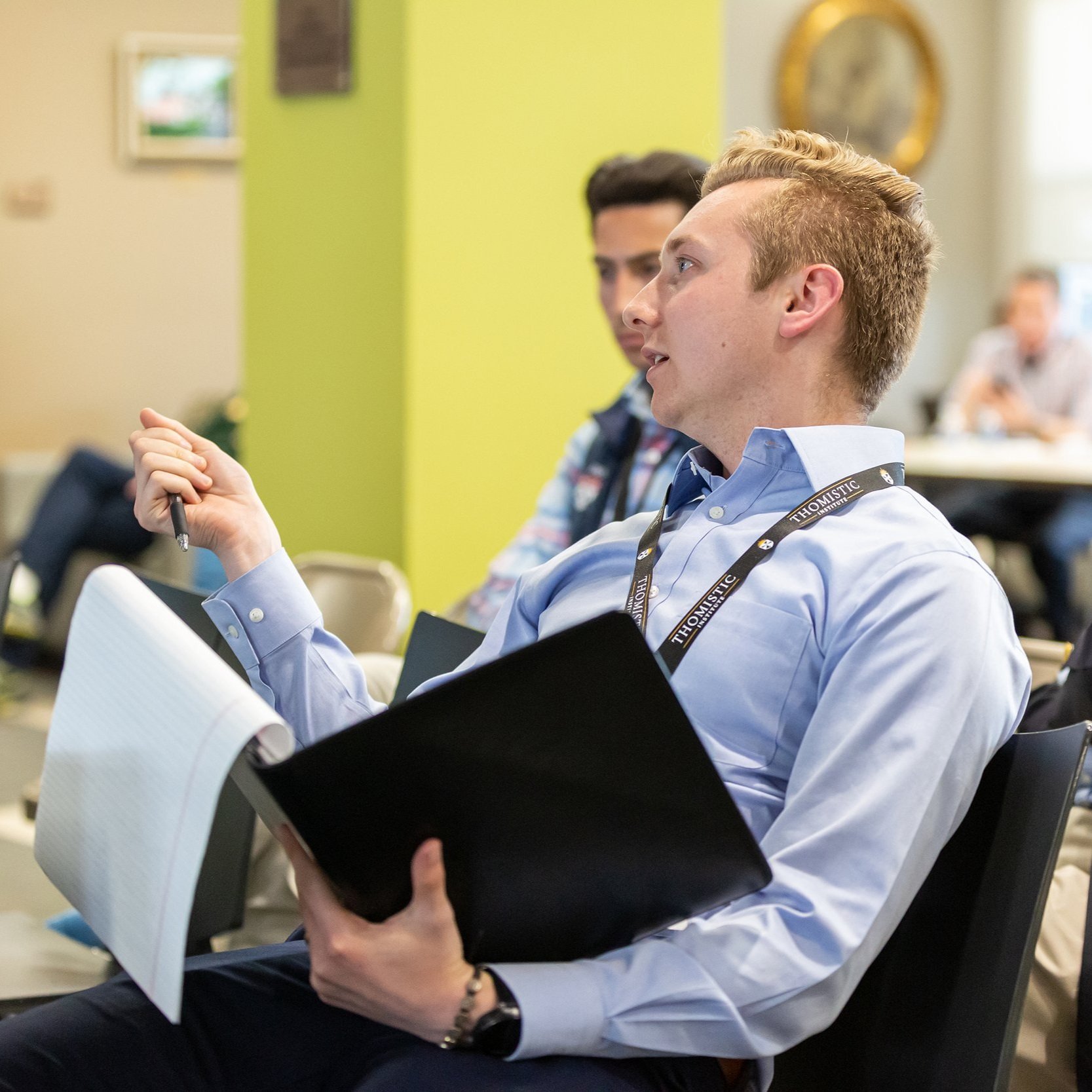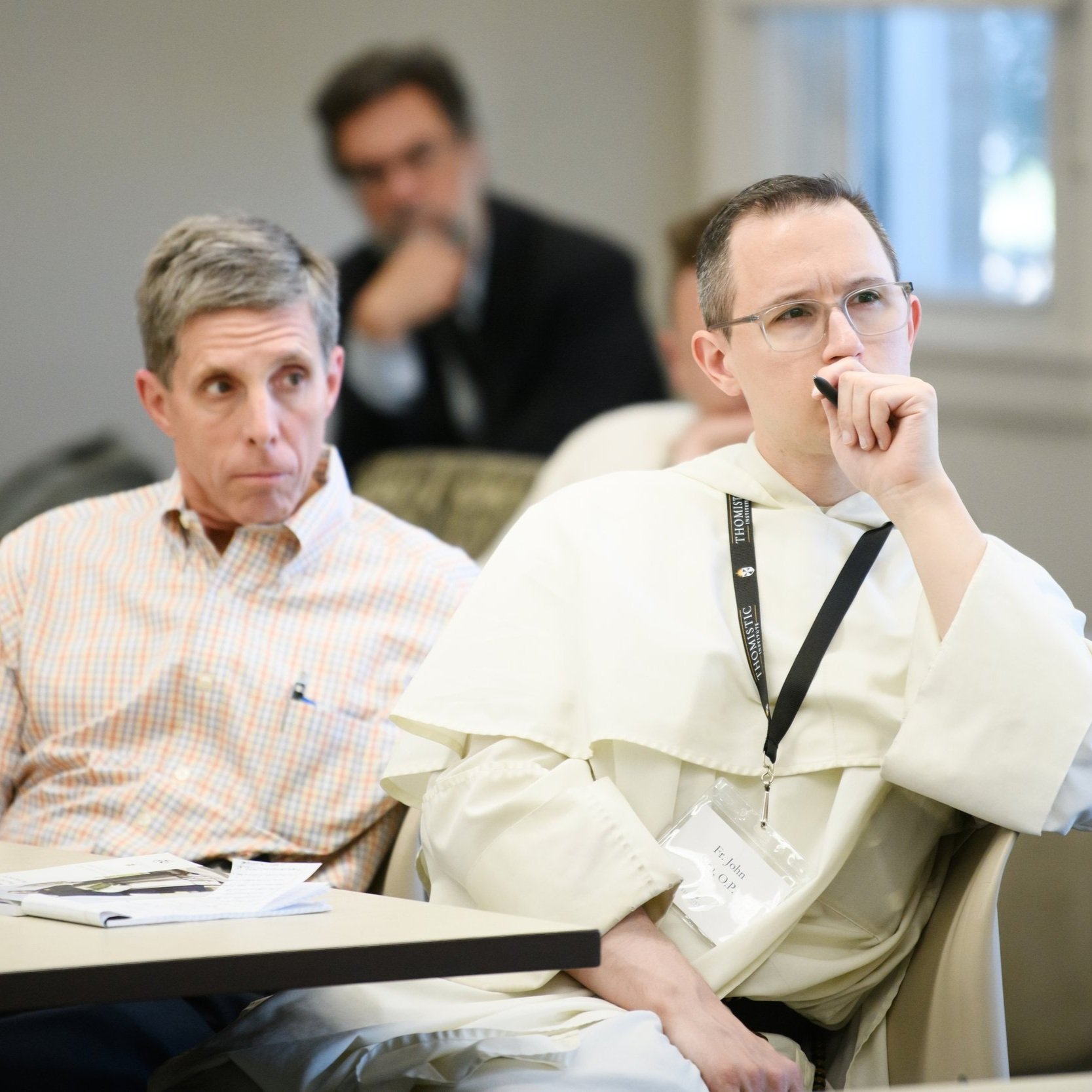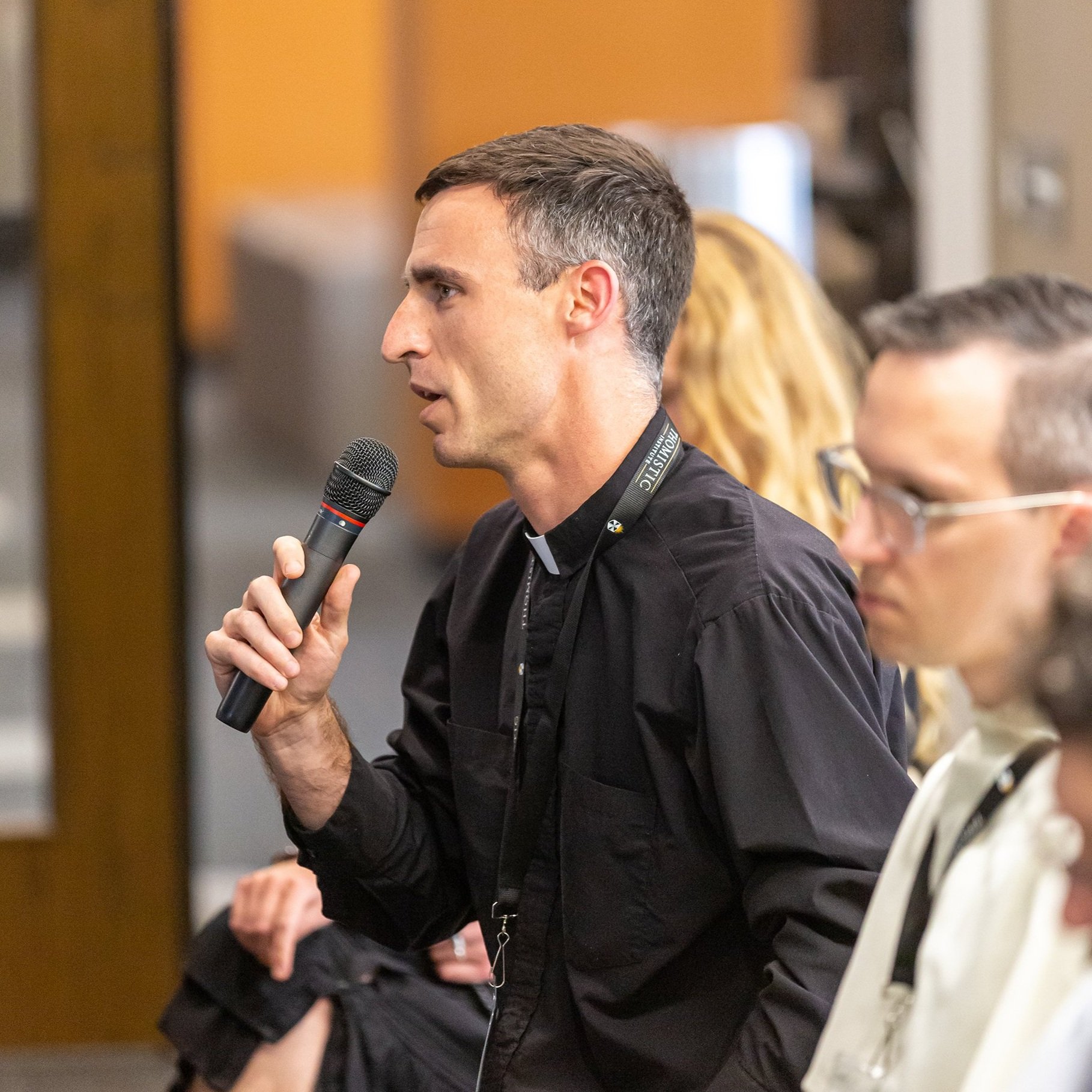13th Annual Aquinas Philosophy Workshop
St. Thomas Aquinas on Divine Simplicity
Mount Saint Mary College | Newburgh, NY
Wednesday, May 29 - Sunday, June 2, 2024
Each summer, the Thomistic Institute and the Catholic and Dominican Institute co-sponsor a four-day workshop for graduate students, advanced undergraduate students, and lovers of philosophy. The conference features renowned presenters from prestigious universities around the world and will take place once again at Mount Saint Mary College in Newburgh, NY. The topic for the 13th Annual Aquinas Philosophy Workshop is “St. Thomas Aquinas on Divine Simplicity.”
2024 Featured Speakers
-
Fr. James Dominic Brent, O.P. was born and raised in Michigan. He pursued his undergraduate and graduate studies in Philosophy, and completed his doctorate in Philosophy at Saint Louis University on the epistemic status of Christian beliefs according to Saint Thomas Aquinas. He has articles in the Internet Encyclopedia of Philosophy on Natural Theology, in the Oxford Handbook of Thomas Aquinas on “God’s Knowledge and Will”, and on “Thomas Aquinas” in the Oxford Handbook of the Epistemology of Theology. He earned his STL from the Pontifical Faculty of the Immaculate Conception. He taught in the School of Philosophy at The Catholic University of America from 2010-2014, and spent the year of 2014-2015 doing full time itinerant preaching on college campuses across the United States. Since then he has been an Assistant Professor of Philosophy at the Dominican House of Studies.
-
Jeffrey E. Brower is a Professor of Philosophy at Purdue University, where he serves as the faculty advisor for the Thomistic Institute. He specializes in medieval philosophy, metaphysics, and philosophical theology and especially enjoys working at the intersection of all three areas. He is the author of Aquinas’s Ontology of the Material World: Change, Hylomorphism, and Material Objects (Oxford University Press, 2014) and a contributor to The Oxford Handbook on Aquinas (Oxford University Press, 2012). His recent articles include “Aquinas on the Individuation of Substances,” Oxford Studies in Medieval Philosophy (2017) and “Aquinas on the Problem of Universals,” Philosophy and Phenomenological Research (2016).
-
Gregory T. Doolan received his B.A. in political theory from Georgetown University in 1993 and his Ph.D. in philosophy from The Catholic University of America in 2003. He taught philosophy at the Dominican House of Studies in Washington, D.C. from 2004–05 and joined the faculty of the School of Philosophy at the Catholic University of America in 2005. Prof. Doolan’s research interest is in the area of Aquinas’s metaphysics; in recent years, his focus has been on Aquinas’s account of the Aristotelian categories of being as well as on the intersection between semantics and metaphysics. He is the author of Aquinas on the Divine Ideas as Exemplar Causes, the editor of The Science of Being as Being: Metaphysical Investigations, and has been published in various philosophical journals. A native of Philadelphia, Dr. Doolan currently lives in Washington, D.C. with his wife and three children.
-
Michael Gorman is a Professor of Philosophy at The Catholic University of America in Washington D.C. He holds doctorates in both philosophy and theology. He is the author of Aquinas on the Metaphysics of the Hypostatic Union (Cambridge 2017) and A Contemporary Introduction to Thomistic Metaphysics (forthcoming from The Catholic University of America Press).
-
W. Matthews Grant is a Professor of Philosophy at the University of St. Thomas (MN), and Associate Editor of the American Catholic Philosophical Quarterly. His work has focused on Aquinas and the philosophy of God, particularly issues having to do with the divine nature and God’s relationship to human freedom. His book, Free Will and God’s Universal Causality: The Dual Sources Account, draws resources from Aquinas and the scholastic tradition to explain how libertarian creaturely freedom can be reconciled with robust accounts of God’s providence, grace, and predestination.
-
Joshua Hochschild is a Professor of Philosophy and Director of Philosophy, Politics and Economics at Mount St. Mary’s University, where he also served six years as the inaugural Dean of the College of Liberal Arts. His primary research is in medieval logic, metaphysics, and ethics, with broad interest in liberal education and the continuing relevance of the Catholic intellectual tradition. He is the author of The Semantics of Analogy: Rereading Cajetan’s De Nominum Analogia (2010), translator of Claude Panaccio’s Mental Language: From Plato to William of Ockham (2017), and co-author of A Mind at Peace: Reclaiming an Ordered Soul in the Age of Distraction (2017). His writing has appeared in First Things, Commonweal, Modern Age and the Wall Street Journal. For 2020-21 he served as President of the American Catholic Philosophical Association.
-
Sister Anna Wray is a native of Connecticut and a member of the Dominican Sisters of Saint Cecilia of Nashville, TN. Sister received her phD in philosophy from The Catholic University of America, having written her dissertation on Aristotle’s account of the activity of contemplation. Sister is an assistant professor on the faculty of CUA's School of Philosophy in Washington, DC, where she regularly teaches courses in the history of philosophy, logic, rhetoric, ethics, philosophy of religion, and philosophical psychology. She is also an adjunct professor for Aquinas College, where she teaches metaphysics and epistemology to her sisters in formation. When time permits, sister enjoys the occasional trip that allows her to speak to (and with) others who share her loves.
Registration
The deadline for registration has passed.
Call for Papers
A select panel of graduate student papers will take place during the workshop.
We invite graduate students in philosophy, theology, religious studies, medieval studies, and related disciplines to submit papers via the link below.
The deadline for paper submissions has passed.
Sponsored by
This event is in-person only. If you cannot make it to the conference, be sure to listen to the lecture recordings after they are published on the Thomistic Institute podcast.


